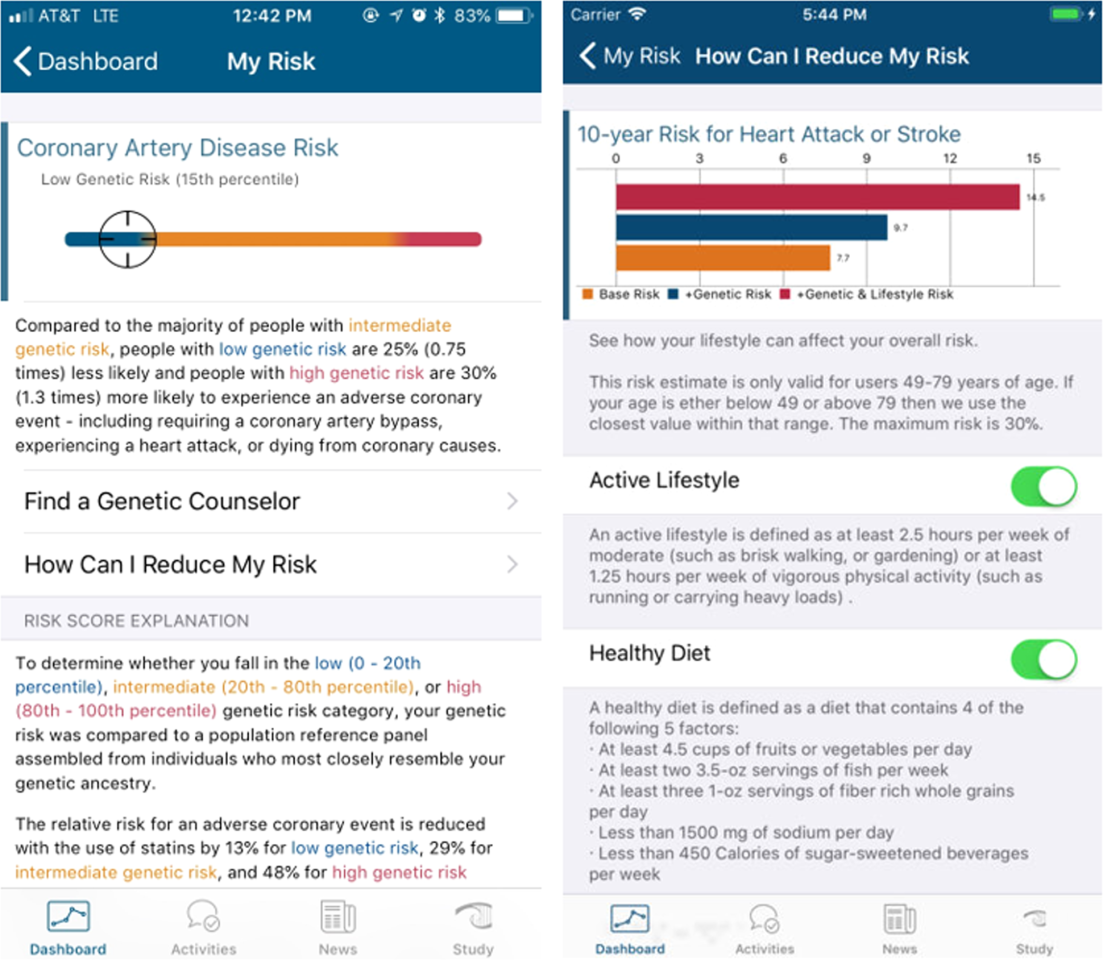A new smartphone app called MyGeneRank has been developed by scientists at the Scripps Research Translational Institute. The app calculates a person’s genetic risk for coronary artery disease and directs those found to be at high risk to appropriate medical advice.
Coronary artery disease (CAD) is the most common cause of death worldwide. Nearly 20 million Americans experience CAD, yet as little as one-third of those most at risk of death take appropriate medications.
Because CAD is a highly heritable condition genetic risk scores can play an important role in identifying those patients who would most benefit from lipid-lowering medications. This new study, published in the journal npj Digital Medicine, looked at the effect of a smartphone app in directing high-risk patients to appropriate clinical care.
The app, currently available on iPhone and Android, calculates a user’s polygenic risk score for CAD from pre-existing 23andMe data. After filling out a number of health surveys and consenting to the app accessing 23andMe data, the user is supplied with a CAD genetic risk score, alongside advice for lifestyle modifications and genetic counseling.
The app is still technically presented as a research tool and this new study looked at the results from 721 early users. Each subject in the study was offered initial genetic risk data and was then followed up a year later to track subsequent behavioral responses to the data.

Scripps Research
“We now have the opportunity to integrate a person’s genetics into their cardiovascular health assessment to help them better understand their individualized risk and empower them to make the necessary modifications – including the addition of statin therapy – to their risk factor optimization plans,” explained Evan Muse, first author on the new study.
The study found those participants who received high CAD genetic risk scores were twice as likely to commence statins or other cholesterol-lowering therapies over the 12-month follow-up compared to those who received low-risk scores. The follow-up data also indicated the genetic risk score information was perceived by users to be, “understandable, actionable, and does not induce health anxiety.”
Senior author on the study Ali Torkamani said early statin interventions in those at highest risk of CAD could make a significant contribution to public health considering how many people die of unexpected heart attacks every year. Torkamani also said the genetic risk score information has value for those at a lower risk of CAD.
“Even if someone finds out they have low genetic risk for CAD, knowing their score can help – for example if they also know they have high risk overall, that may suggest other non-genetic factors like lifestyle are contributing to their risk and that they should consider making changes,” said Torkamani.
The research project is ongoing and the team is looking to evaluate the efficacy of the app with larger volumes of patients. Further work will also track specific cardiovascular outcomes, such as heart attacks, to better understand the value of offering users genetic CAD risk scores.
The new research was published in the journal npj Digital Medicine.
Source: Scripps Research
Source of Article